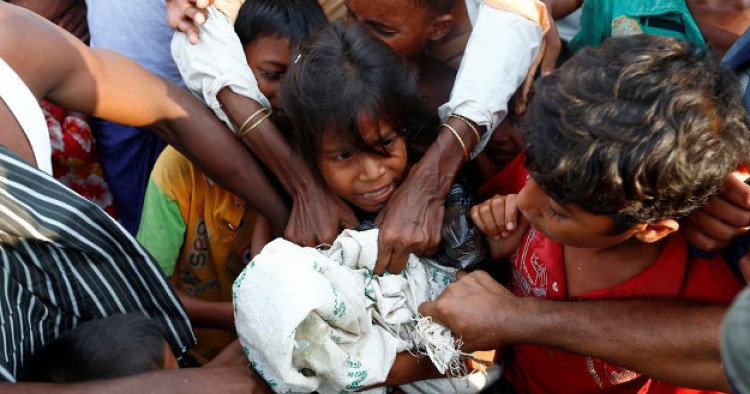The deputy head of the Iranian Parliament has called for the creation of a joint military forces by Muslim countries to stop violence against Rohingya Muslims in Myanmar. “Why aren’t we Muslims thinking about forming a NATO-like joint military force that can intervene in such situations?” Ali Motahari was quoted as saying by the Iranian Students’ News Agency today. He criticized the Organization of Islamic Cooperation for not holding an emergency meeting to address the issue. “The crimes of the government of Myanmar will not be halted without using military force,” he stressed. The outspoken lawmaker also chastised the Iranian leadership for inaction. “Unfortunately, we think more about the Shiites than Islam, which constitutes both Shiites and Sunnis. Turkey’s response was better than ours. It told Bangladesh to accept Muslims driven out from Myanmar and Turkey would pay for their stay in Bangladesh.” Motahari added that Americans and Europeans adhere to Islamic teachings about helping their own oppressed than Muslims do.
Mohsen Rezaee, the secretary of Iran’s Expediency Council and former chief commander of the Islamic Revolution Guards, also said that Iran, Turkey, Syria and Iraq should establish a joint force called “Sepah-e Rasulullah [Army of Prophet]” and other countries should join in later.
Comment: According to the United Nations, more than a quarter of a million Rohingya Muslims have sought refuge in neighboring Bangladesh as a result of targeted violence against them over the past two weeks. The refugees have said that Myanmar’s military are burning down their villages and persecuting them.
The violence against Muslims in Myanmar has drawn a great deal of debate in Iran. During Friday prayers, top Iranian clerics condemned the violence and criticized the West and international human rights organizations for remaining “silent” toward the killing of Muslims in Myanmar. The Islamic Revolution Guards Corps released a statement condemning the “crimes against Myanmar Muslims” and expressed readiness to “participate in any effort to protect and assist those displaced and affected by this crime.” Iranian Foreign Minister Javad Zarif wrote a letter to U.N. Secretary-General António Guterres, emphasizing the need for an immediate end to violence against Muslims in Myanmar. But rhetoric aside, Tehran, unlike Turkey, has not provided any humanitarian relief or other assistance to help the refugees in Bangladesh – a fact that has displeased some Iranian lawmakers. Furthermore, the Iranian leaders’ call for establishing an Islamic army to defend Muslims around the world ring hollow as many regional Muslim countries hold the Islamic Republic responsible for much of present-day bloodshed and violence in the Middle East.
The Middle East Institute (MEI) is an independent, non-partisan, non-for-profit, educational organization. It does not engage in advocacy and its scholars’ opinions are their own. MEI welcomes financial donations, but retains sole editorial control over its work and its publications reflect only the authors’ views. For a listing of MEI donors, please click here.












